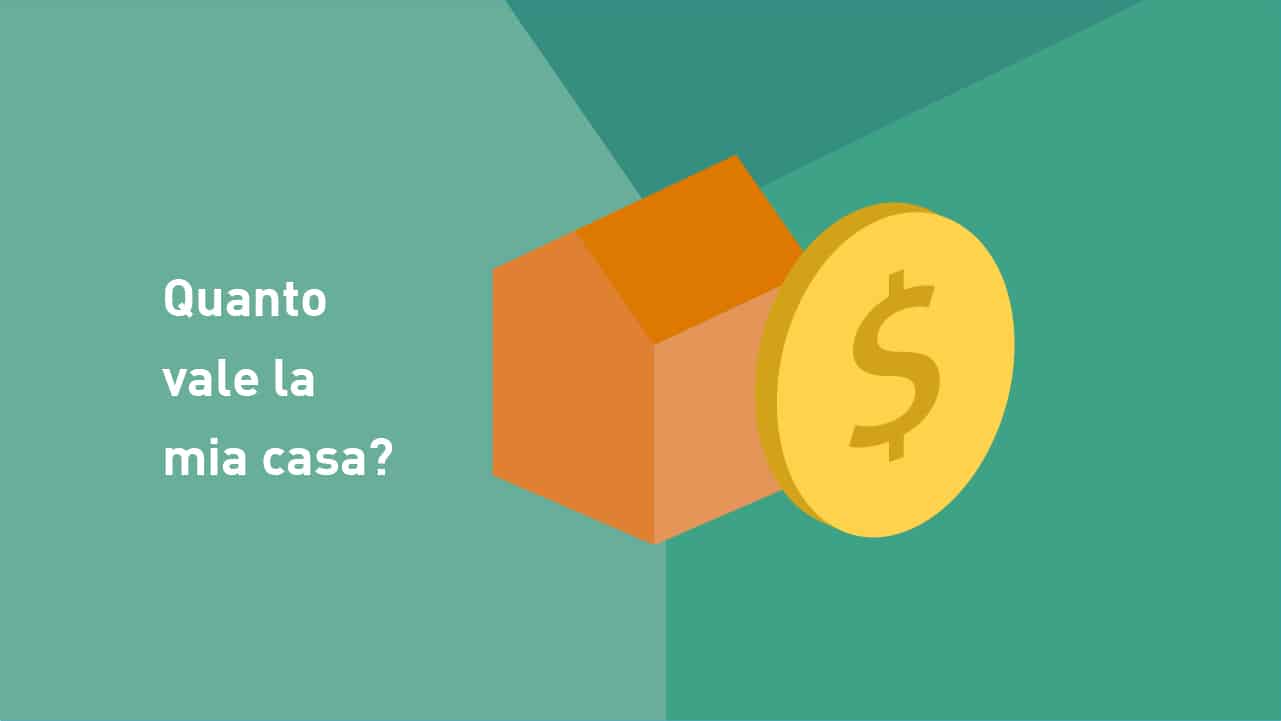If you are a property owner, you have probably wondered. what is the value of your home on the real estate market. Evaluating the right price for a house requires taking into account a long series of parameters, ranging from the area in which the property is located, square footage, market fluctuations to the characteristics of the house itself, that is, what amenities it has and what is its state of maintenance and finish.
Rely on professionals or a'real estate agency for a proper listing of your property is certainly the best way to make an estimate. In this article, we will try to give you a general overview of the Process the professional carries out to calculate the value of your home.
The element that has the greatest impact on property value is thelocation. In large cities, and in any case generally even in medium-sized cities, the value increases with the proximity of historic centers or otherwise urbanized central areas, while it decreases as the extent of urbanized area decreases. Moreover, substantial differences can also be observed between neighborhoods. Urban centers undoubtedly offer considerable services within easy reach, and the presence of stores, schools, universities, hospitals, or proximity to stations, buses, subways, or airports weigh in the choice of those who want to have travel facilities.
However, there are areas far from urbanized centers, but with a strong landscape character such as hills and small historic villages, where the value of the 'property goes back up, even more so if they are areas with a high flow of tourists: here, evidently, we will not find road connections and good quality services but we will find other features that many customers tend more and more to demand, especially for those who choose to escape from urban stress and are looking for tranquility and contact with nature.
Last but not least are to be considered both the level of security of the area than even the rate of air pollution.
To recapitulate, land characteristics are important factors in determining the right price for your home.
The other important aspect of estimating the value of a property is. Assess market prices in the area. The analysis is based on the study of properties bought and sold in a given historical period that have similar characteristics to the property to be evaluated.
The professional knows full well that the value of properties advertised in the various channels specializing in real estate listings and the final value at the time of purchase and sale can be markedly different, something that frequently the eye of an inexperienced user who prefers DIY fails to catch.
In studying the value of the property, price trends over time should also be assessed to predict the possible market fluctuations And give as accurate an estimate as possible.
We now come to the intrinsic elements of the house itself. The first element that has an impact on its value is the square footage. Thus, compared to houses that are in the same area, those with larger square footage (sq. m.) are obviously more valuable. In this regard, it should be borne in mind that it is not the walkable square footage that should be considered, but rather the commercial square footage for the calculation of which various coefficients and ancillary surfaces contribute, including, by way of example, perimeter walls, garden, garage or balconies. It should also be emphasized that the application of a square meter value to the resulting area of the house is not, in the vast majority of cases, a completely reliable figure, an example of which is the simple multiplication of the square meter value in properties with a large surface area, in these cases the estimate of the value in the analytical sense will certainly be overestimated and therefore out of the market. It will therefore be advisable to define an accomplished value of these properties by means of a comparative estimate from which precisely a more reliable and truthful value will result.
Next, for a good estimate we need to consider the state of the property: Is the house in good condition or does it need renovation? Or perhaps it is a newly built property? Clearly the better the condition, the higher the valuation of the house. Then there are many other characteristics to examine, such as exposure, brightness, energy performance, the type of facilities it has, as well as the condition of the roof and fixtures.
Let us also not forget the comfort and discomfort.
An apartment on the fourth floor is undoubtedly more convenient if it is served by an elevator, and consequently, all other indexes being equal, it will sell at a higher price.
A detached or semi-detached house with exclusive outdoor space will certainly have greater appeal than a property without it so again on the price evaluation this aspect will definitely weigh in favor of this type of property.
We could also dwell on other more strictly technical dynamics such as the volumetric extensions that some properties may be entitled to as well as the tax relief that can be claimed, which vary depending on the renovation work needed and the type of property owned without forgetting many other facets that with experience and professionalism a good real estate consultant is able to apply in the estimation process weighing the importance of each individual element and evaluating case by case how much it affects all the other parameters described in this article.
All of the above can help you understand the main factors that go into determining the right price for your home. As you can imagine, making a correct estimate is by no means simple but we can help you, that's our business. Fill out the following form and we will get back to you as soon as possible.

